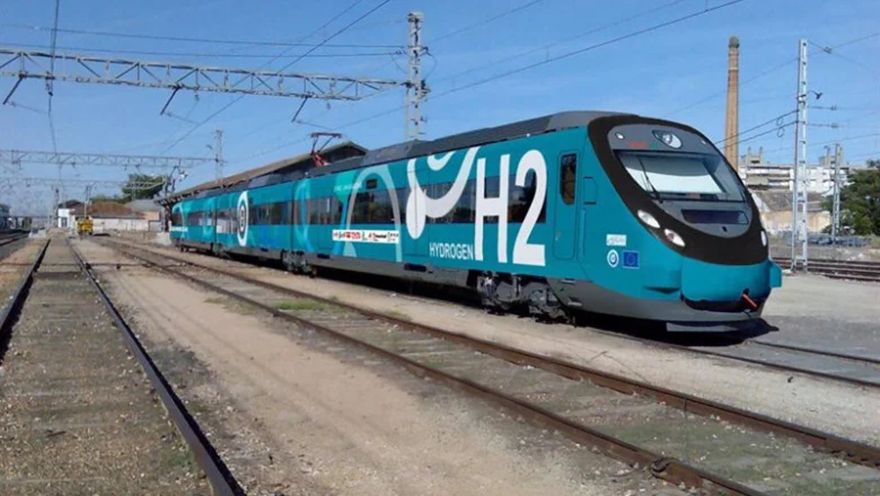
At the end of May, at its plant in Zaragoza, Spain,
CAF started static tests on the hydrogen-powered demonstrator train being developed for the FCH2Rail project — a consortium of CAF,
DLR,
Toyota,
Renfe, Adif,
CNH2, IP, and Faiveley Stemmann Technik.
The demonstrator train is based on one of Renfe’s ‘Civia’ commuter trains, in which a new power generation system has been installed; this uses a ‘hybridisation’ of energy from hydrogen fuel cells and batteries that have been integrated into the vehicle’s existing traction system, which means it will become one of the first bi-mode demonstrator trains with hydrogen fuel cells. The train will be able to run in electric mode on the electrified infrastructure, while the hybrid mode will be used for operating on catenary-free sections.
To date, all the equipment making up the new ‘fuel cell hybrid powerpack’ has been tested, and CAF has carried out the mechanical, electrical and hydraulic work to install it on the original Civia unit. The next stage is to conduct tests to validate the integration of this new system. Once this stage of the testing has been completed at CAF Zaragoza, the unit will be in ‘optimum condition’ to start the dynamic tests on an external track; these are planned for this summer.
The project has a 14 million euro budget, 10 millions of which is being funded by the Clean Hydrogen Partnership, formerly FCH2 JU, a European Commission agency dedicated to promoting the development of hydrogen and fuel cells.